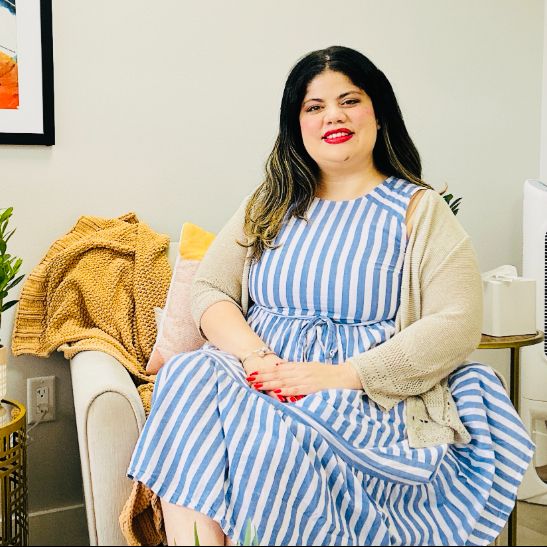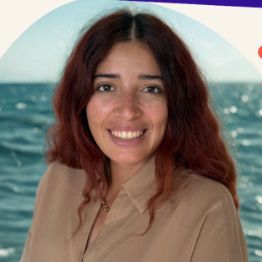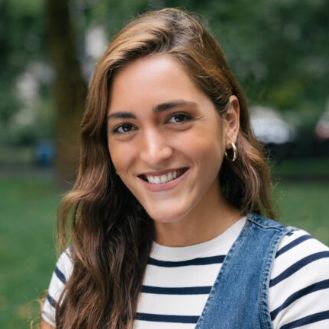Your Guide to Trauma Therapy in Orlando
Healing from trauma starts with the right support, and MiResource makes it easier to find trauma therapy in Orlando that truly fits you. Explore our therapist directory to discover professionals matched to your needs, preferences, and location. Start your search today and connect with a provider who feels like a good fit.
Learn more about Trauma
This page for Orlando covers general information about trauma, its signs, and considerations for seeking help. It also explains what someone can expect from therapy or treatment for trauma, including typical approaches and care pathways.
What is Trauma?
Trauma is an emotional response to a distressing or life-threatening event, such as an accident, assault, or disaster. Common symptoms include intrusive memories or nightmares, feeling on edge, trouble sleeping, avoiding reminders, and shifts in mood or thinking. These experiences can affect daily life in Orlando, making it harder to focus at work or school, maintain relationships, and feel safe in your body. If you’re exploring support, learn more on our Trauma page.
Why Seek Therapy for Trauma?
Seeking therapy for trauma can be a transformative step towards healing and reclaiming your life. In Orlando, our compassionate therapists are dedicated to providing a safe space where you can explore your experiences and emotions. Evidence-based therapies such as Cognitive Behavioral Therapy (CBT), Eye Movement Desensitization and Reprocessing (EMDR), and Trauma-Focused Cognitive Behavioral Therapy (TF-CBT) are designed to help you process traumatic memories, reduce distress, and build resilience. These therapies can empower you to understand and manage your symptoms, improve your relationships, and enhance your overall well-being. By choosing therapy, you are taking a courageous step towards a brighter, more fulfilling future.
What to Expect from Trauma Therapy
Trauma therapy is a collaborative, personalized process where you set goals with your therapist and move at a pace that feels safe for you. In Cognitive Processing Therapy, you can expect to gently examine stuck thoughts about the trauma and learn new ways to understand what happened. Prolonged Exposure involves gradually approaching memories and situations you’ve been avoiding, with supportive coaching to reduce fear and regain confidence. Eye Movement Desensitization and Reprocessing uses structured sets of eye movements or tapping while focusing on memories to help your brain reprocess distress. For children and teens, Trauma-Focused CBT combines coping skills, gradual exposure, and caregiver involvement to foster healing, and all care is adapted to your unique needs in Orlando.
How to Find the Right Trauma Therapist in Orlando
Start by searching the directory for your primary concern, then narrow results by therapist approach to find methods that match your needs. Use filters to select providers with specific experience treating trauma, and refine further by accepted insurance plans. Check real-time availability to book sooner and sort by proximity to your location in Orlando. Remember that personal fit—communication style, cultural sensitivity, and comfort—is crucial to effective care. MiResource makes it easy to compare options side by side, so explore the directory now.
Why Choose a Local Orlando Trauma Therapist?
Orlando’s culture is shaped by hospitality shifts, UCF’s bustling student life, the creative energy of Mills 50 and Ivanhoe Village, and the legacy of resilience after the Pulse tragedy—factors that can uniquely influence trauma, grief, and stress. A local therapist understands the pressures of theme-park and service industry schedules, the impacts of hurricane seasons, and the diverse identities within Parramore, Lake Nona’s Medical City, College Park, and Baldwin Park. We also recognize how bilingual and multicultural communities—including a large Puerto Rican and Latinx population—may face immigration stressors, acculturation challenges, or language barriers. Grounded in this context, in-person work can feel safer and more relevant, honoring Orlando’s strong ties to faith communities, LGBTQ+ spaces, and neighborhood networks.
Logistically, seeing a therapist nearby can make consistent care easier amid I‑4 congestion around Downtown and the Attractions, toll routes like 408 and 417, and busy corridors such as Colonial, Semoran, and Kirkman. Many clients prefer offices near Lake Eola or the Dr. Phillips area for easier parking, or along the SunRail line (Church Street, AdventHealth stations) and close to LYNX Central Station for transit access. For students in East Orlando, care near UCF and Waterford Lakes reduces commute fatigue; for families in Horizon West or Winter Garden, late-afternoon appointments can dodge rush-hour bottlenecks. Orlando also offers strong local resources to complement therapy: NAMI Greater Orlando peer groups and classes, Aspire Health Partners crisis and mobile response services, Orange County Mental & Behavioral Health navigation, 211 from Heart of Florida United Way for immediate linkage, and UCF Counseling & Psychological Services for students.
Frequently Asked Questions
How do I know if I need a therapist for Trauma?
It might be time to seek help if memories, nightmares, or sudden reminders are disrupting your sleep, mood, or relationships. You may feel on edge, numb, or avoid places and people—even daily routes in Orlando—that remind you of what happened. If you’re having trouble concentrating at work or school, feeling hopeless, or using substances to cope, support can help. Reaching out doesn’t mean your trauma isn’t “bad enough”; it means you deserve relief.
What if I don't feel a connection with my therapist? Is it okay to switch?
Yes—finding the right fit is a normal part of the process, especially for Trauma work where trust and safety are essential. A strong therapeutic alliance helps you process painful memories at your own pace. If you don’t feel understood after a few sessions, it’s okay to discuss it or try another provider in Orlando. Your comfort is a key predictor of progress.
Is online therapy as effective as in-person therapy?
For many people recovering from Trauma, online therapy can be just as effective as in-person care, especially with structured approaches like CBT or EMDR adapted for telehealth. It increases access if you’re juggling work, childcare, or traffic in Orlando, and can feel safer if certain environments are triggering. Some prefer in-person sessions for grounding or specific somatic techniques. The best choice depends on your comfort, privacy at home, and the nature of your symptoms.
What should I ask a potential Trauma therapist?
Ask about their training and licensure, and whether they specialize in evidence-based trauma therapies like EMDR, TF-CBT, CPT, or PE. Inquire how they ensure safety and pacing, and how they handle triggers or dissociation. Discuss session structure, goals, and how progress is measured. Clarify logistics important in Orlando—availability, telehealth options, fees, insurance, and wait times.
Does therapy for Trauma really work?
Yes—research shows therapies such as EMDR, Cognitive Processing Therapy, Prolonged Exposure, and Trauma-Focused CBT can significantly reduce symptoms and improve daily functioning. Many people in Orlando report better sleep, fewer intrusive memories, and stronger relationships over time. Consistency, a collaborative plan, and a good therapist-client fit make a real difference. Healing is gradual, but with the right support, it’s very possible.













